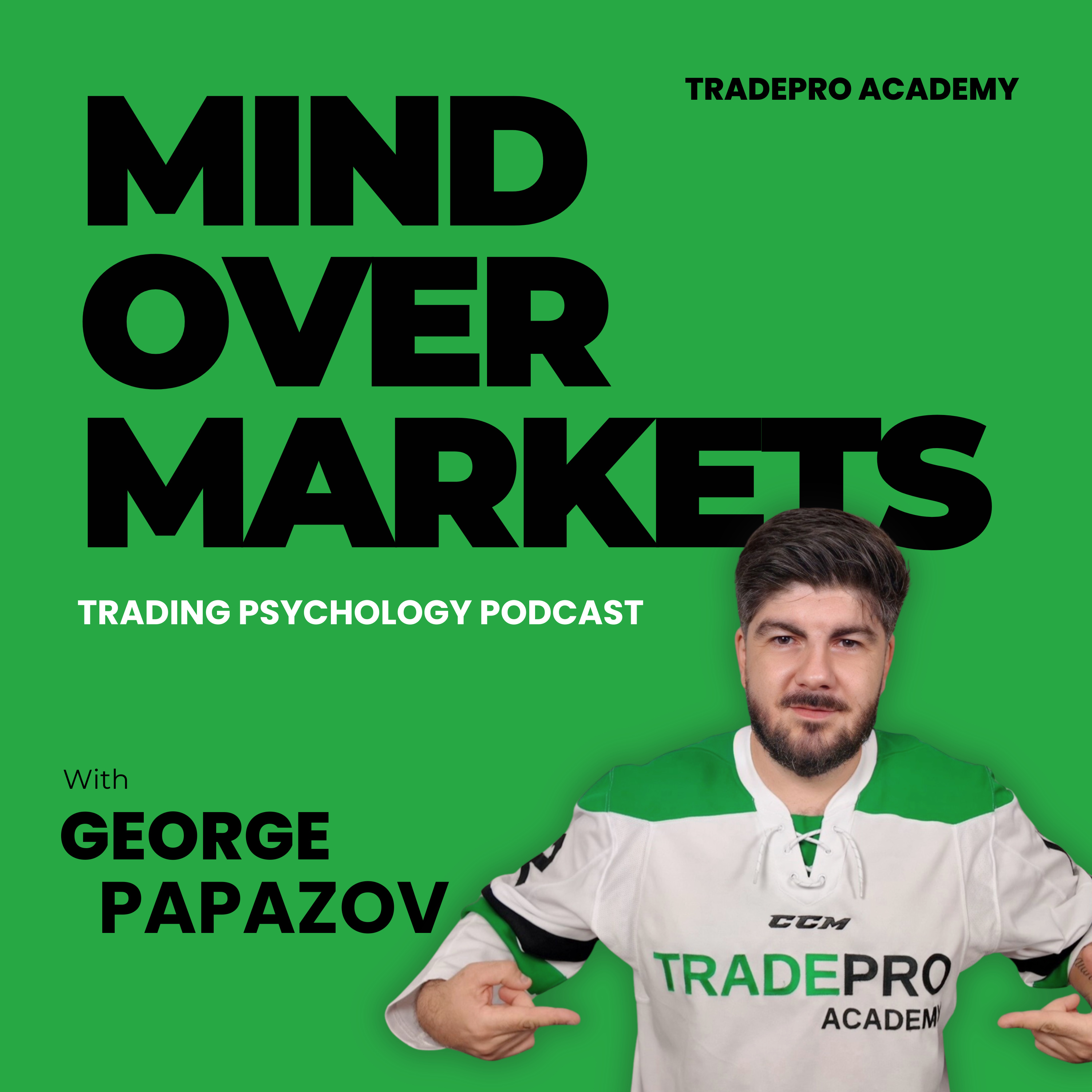

Mind Over Markets: Trading Psychology Podcast
George Papazov
Mind Over Markets is the trading psychology podcast for serious traders ready to master the real edge — their mind. Hosted by George Papazov, founder of TRADEPRO Academy, this show helps you break emotional loops, regulate impulses, and build a confident trader identity. Learn how to rewire your mindset using NLP, coaching, and performance psychology. Ready to go deeper? Unlock the full ASCEND psychology program inside TRADEPRO Academy.
Episodes
Mentioned books

Apr 15, 2021 • 45min
What to Expect on Your Journey to Profitable Trading
In this episode, we provide you with a layout of what the journey to consistent profitability actually looks like so that you can set your expectations for what lies ahead! A trading journey is never the first thing a trader really considers..in fact, it’s the end result you crave. The money, the cars, the freedom […]

Apr 8, 2021 • 37min
Don’t Confuse Brains with a Bull Market
In today’s episode, we discuss how bull markets, much like the one we are currently in, can let new traders get away with some bad habits that will eventually lead to blowing out unless they get corrected as soon as possible. A False Sense Of Confidence Beginner traders often get overconfident when they find a […]

Apr 1, 2021 • 1h 25min
Student Interview with TRADEPRO Member Zalman Sulmayanov
In this episode, we’re excited to bring to you another student interview with TRADEPRO member Zalman Sulmayanov! We recently sat down with Zalman for a great discussion on his trading journey since finding TRADEPRO Academy, what he has learned along the way to profitability and how he continues to develop and grow as a trader. […]

Mar 25, 2021 • 46min
Why Boring is Good When It Comes To Trading
In today’s episode, we discuss why boring is actually good when it comes to trading! This statement might be a bit off-putting – especially for traders just beginning their journey because how can trading not be exciting when you can be making life-changing money? While you certainly can make great money in this industry, the […]

Mar 18, 2021 • 1h 5min
How to Run Your Profits Like a Professional Trader
In today’s episode, we are going to be focusing our discussion on some strategies that traders can use to overcome the psychological barrier of letting profits run. After all, one of the golden rules in trading is to cut your losses quickly and to run your profits but the reality is that it’s easier said […]

Mar 8, 2021 • 1h 31min
The Rise of the Female Trader with Sarah Glass
As we celebrate International Women’s Day today, the team at TRADEPRO sends our appreciation and gratitude to all of the female traders out there! If you look at the trading industry these days, the unfortunate reality is that it still remains a “boys club”, however, we are happy to see that there are a growing […]

Mar 4, 2021 • 1h
Using Your Subconscious Mind to Trade without Fear
In today’s episode, we are going to be discussing how traders can tap into the subconscious mind to remove their fears about trading It’s no secret that we are our own biggest obstacles – and our minds – more specifically our thoughts – play a huge role in the actions that we take and the […]

Feb 25, 2021 • 1h 1min
How To Program Your Mind for Success Using Daily Affirmations
In today’s episode, we are going to be speaking on affirmations and how traders can benefit from adding this daily practice into their routines so as to help build a mental edge for optimal trading performance. You will walk away from this episode with a better understanding of what affirmations are, how they work, as […]

Feb 18, 2021 • 1h 18min
How To Bounce Back from Rock Bottom with AJ Garcia
Think back to the single worst event in your life; Did it defeat you or did you use it to your advantage and turn it into the greatest moment that ever happened to you? In today’s episode, we’ve got a special guest by the name of AJ Garcia, whose story is nothing short of inspirational! […]

Feb 11, 2021 • 1h 14min
5 Important Lessons from the GME Short Squeeze Saga
In today’s episode, we are going to be discussing the recent euphoria around the GameStop short squeeze, what actually happened and some of the important lessons that new traders can learn from this recent saga! What Happened with GameStop (Ticker: GME)? Around this time last year (2020), GME was trading below the $5 mark and […]


